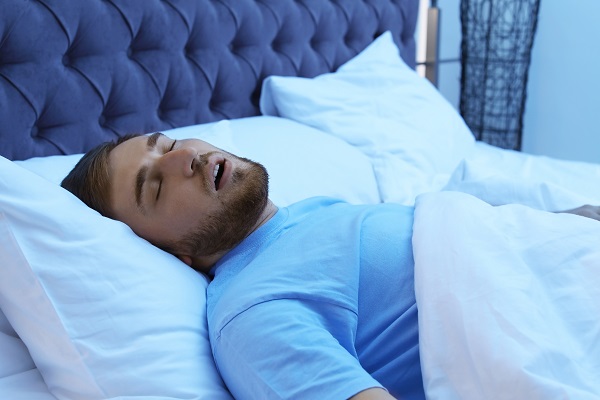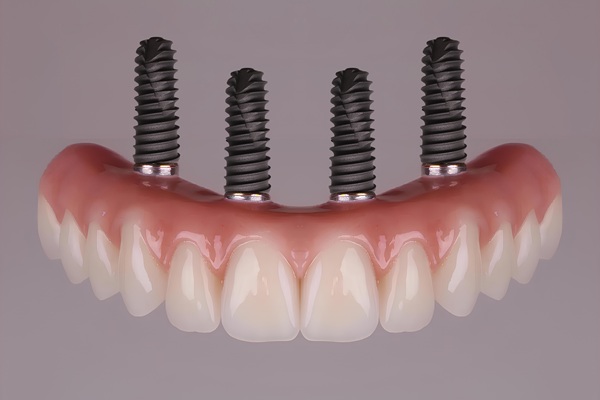Reasons to Treat Sleep Apnea With a Dental Oral Appliance

Wondering how to treat your sleep apnea? This sleep disorder causes you to stop breathing during the night, which is caused by either your tongue or excess tissues blocking the back of your throat. Common signs associated with this condition include snoring, headaches, a dry throat, grinding or clenching teeth, mood swings, feeling tired and gasping for air during the night.
Oral appliance therapy
Understanding the oral appliance therapy options for treating sleep apnea is necessary when you have been diagnosed with sleep apnea. The fact that there are a few different types of oral appliances available makes it a good idea for you to understand how each type of oral appliance works. Common types of dental oral appliances include a CPAP machine, a mandibular advancement device and a tongue-retaining device.
According to the American Academy of Dental Sleep Medicine, oral appliance therapy is an effective treatment option for snoring and obstructive sleep apnea, as a custom-fit oral sleep appliance can improve your sleep, restore your alertness and revitalize your health.
Reasons to treat sleep apnea with a dental oral appliance
The list below includes common reasons for using a particular type of oral appliance in order to treat this common sleep disorder.
#1. Reasons to use a CPAP machine
Why treat sleep apnea with a CPAP machine? One reason that sleep apnea patients are choosing this type of dental oral appliance is that it allows them to get a restful night's sleep. Two additional reasons include that CPAP machines are easy to use and provide users with a sufficient amount of air during the night to support their good overall health.
#2. Reasons to use a mandibular advancement device
Mandibular devices are also known as dental sleep devices. The reason sleep apnea patients are choosing this type of oral appliance is that it keeps their airway open during the night, allowing them to breathe easier. This particular device moves the lower jaw forward, which in turn, helps keep the tongue from blocking the throat when sleeping.
#3. Reasons to use a tongue-retaining device
Tongue-retaining devices are dental oral appliances that hold the tongue in a way that prevents it from blocking one's airway when sleeping during the night. It consists of a small piece of plastic that fits over the lips and includes an opening in order to insert the tongue. In order for this particular type of dental oral appliance to work, a patient's tongue must be able to stick out of their mouth far enough for it to be securely held by the device.
Are you in need of a dental oral appliance?
When you are diagnosed with sleep apnea, this potentially serious sleep disorder is one that requires treatment. Since there are a few different types of treatments available for those who have been diagnosed with sleep apnea, it is important to choose one that is right for you. When you make an appointment with us, you will learn everything there is to know about the oral appliances that can treat your sleep apnea.
Request an appointment here: https://www.leixdental.com or call Leix Dental at (815) 604-6104 for an appointment in our Lakewood office.
Check out what others are saying about our dental services on Yelp: Sleep Apnea in Lakewood, IL.
Recent Posts
Wondering how oral appliances can help treat sleep apnea? Oral appliance therapy tends to be the initial treatment when someone is diagnosed with this serious sleeping disorder. Since there are different types of oral appliances, it is essential to choose the right kind.Dental treatment is a popular way to address sleep apnea, as dentists are…
Dental oral appliances, also called mandibular advancement devices, can often treat sleep apnea and relieve symptoms. Understanding more about how dental oral appliances work for sleep apnea treatment and how they compare to other treatment solutions can help you decide if treatment is right for you. The days of relying upon your CPAP machine to treat…
Regular visits to the general dentist for a Dental Checkup are vital for anyone who wants to maintain good oral health. Oral hygiene is important, and even with daily brushing and flossing, there is a chance that undetected oral issues such as cavities and receding gum lines could be present, which might require a proper…
Thinking you want to prevent yourself from having to get dental fillings? No one wants to have a cavity, but when they do, it needs to be filled in order to protect the tooth. While it is indeed necessary for you to brush your teeth at least twice a day and floss your teeth at…


